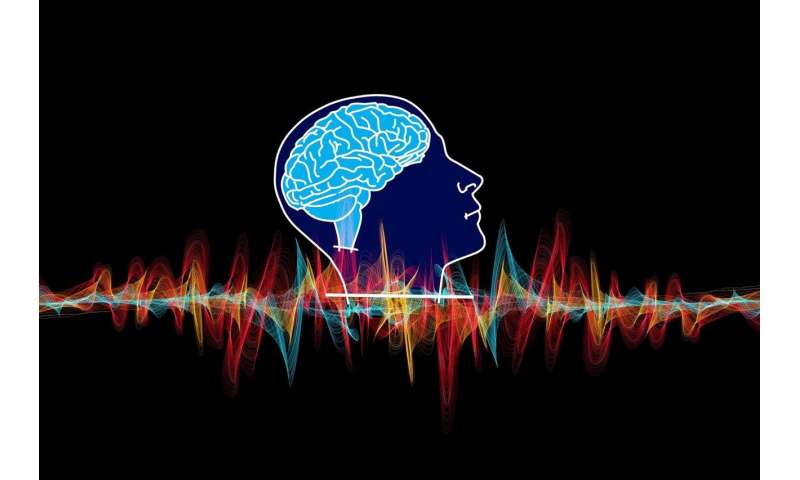
We are at a fun but noisy party: how can we understand the words someone is saying to us despite the background music and voices? Thanks to the hard work of our brain and a special trick, it is capable of using: “predicting” the words that are said. Based on the first sounds that arrive at it directly, the brain makes a prediction, “suggesting” a solution. On this, a new study by SISSA, in association with the universities of Liverpool and Cambridge, has just been published in the journal eNeuro.
Thanks to an elegant series of experiments which involved the analysis of the electroencephalogram of a group of volunteers listening to precise groups of syllables, the study has shown how our auditory system, and the brain in particular, has a phenomenal ability to help us listen and understand in complicated, uncertain and noisy situations. Far from being a simple processor of stimuli, our brain seems to have a decisively proactive role, anticipating the possible word, and detecting readily any error in the prediction. The study is a further step in supporting a central idea in the cognitive neurosciences of recent decades that sees the brain as a proper “predictive machine.”
Listening to unknown words: This is how the experiment was done
In the study, the scholars subjected a group of volunteers to different tests based on repeatedly listening to meaningless three-syllable words. Now and then, however, a specific syllable, the second or third, was changed. In these tests, the scholars then analyzed the brain waves of the subjects using electroencephalography and verified their pattern. When the repeated word was one they had already heard many times, the waves followed a precise pattern. When, instead, a variation occurred in the second syllable, a precise signal, called Mismatch Negativity or MMN, appeared in the brain waves, which is recorded when a prediction is not fulfilled.
“This means that on the basis of the first syllable the brain had made a prediction on what could be the word that the people were hearing. When the prediction was disregarded, the signal MMN appeared” says Yamil Vidal, lead author of the study. The same signal also appeared when the third syllable changed. In this case, the MMN signal was bigger because, as the first two syllables were right, the surprise for the failure of the prediction was bigger. “This is very interesting” explains Vidal “because it tells us that the prediction is maintained over time, even far from the most immediate past.”
Capture the meaning quickly
“The perception of what we listen to is a difficult task, because it requires a fast understanding of the meaning of an auditory signal which is actually very complex” says Vidal “The formulation of predictions could be an efficient solution to reach an accurate and fast understanding.” Considering that the words the volunteers listened to were totally unknown “in these experiments we can see that our auditory system has a formidable ability to learn sequences of phonemes which make up new words and make predictions with these words, though, as in this case, there is no linguistic, semantic or syntax information to come to aid.”
Source: Read Full Article
